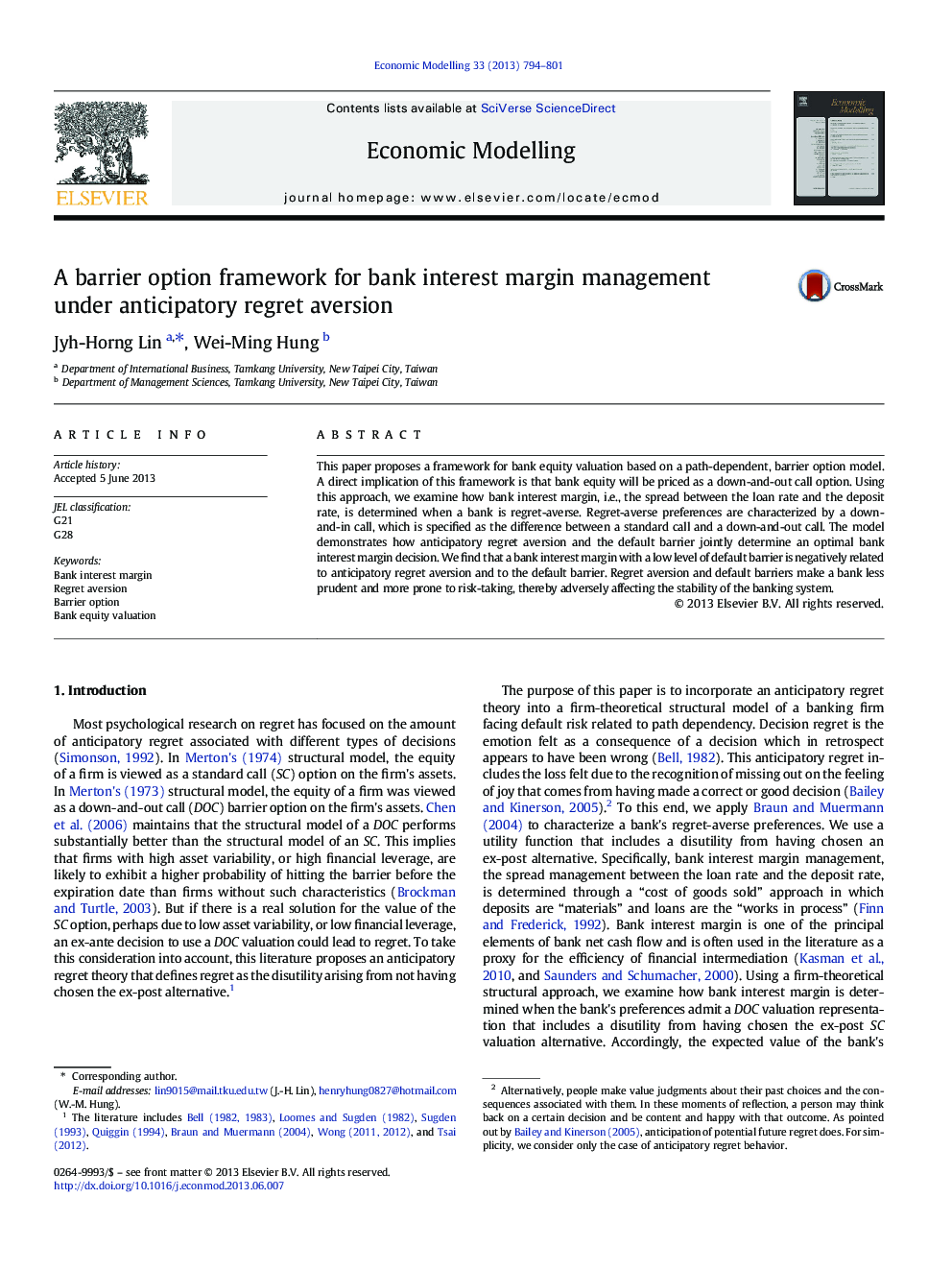| Article ID | Journal | Published Year | Pages | File Type |
|---|---|---|---|---|
| 5054510 | Economic Modelling | 2013 | 8 Pages |
â¢We propose a barrier option framework for bank equity valuation.â¢Anticipatory regret aversion is characterized by a down-and-in option.â¢The interest margin is the spread between the loan rate and the deposit rate.â¢The margin with low barrier is negatively related to regret aversion.â¢Regret aversion as such adversely affects the stability of banking system.
This paper proposes a framework for bank equity valuation based on a path-dependent, barrier option model. A direct implication of this framework is that bank equity will be priced as a down-and-out call option. Using this approach, we examine how bank interest margin, i.e., the spread between the loan rate and the deposit rate, is determined when a bank is regret-averse. Regret-averse preferences are characterized by a down-and-in call, which is specified as the difference between a standard call and a down-and-out call. The model demonstrates how anticipatory regret aversion and the default barrier jointly determine an optimal bank interest margin decision. We find that a bank interest margin with a low level of default barrier is negatively related to anticipatory regret aversion and to the default barrier. Regret aversion and default barriers make a bank less prudent and more prone to risk-taking, thereby adversely affecting the stability of the banking system.
